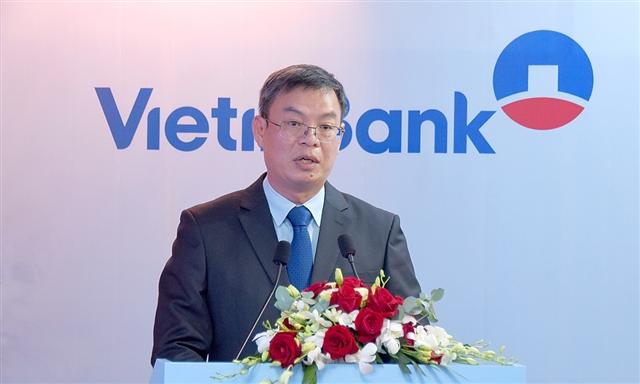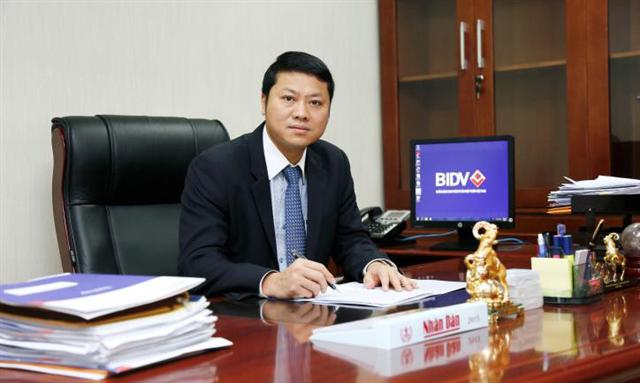Thanh and Sacombank: lays foundation, develops, earns money and leaves
Thanh and Sacombank: lays foundation, develops, earns money and leaves
Having been on the post of the Chair of the Sacombank’s Board of Management for the last 20 years, Dang Van Thanh deserves the credit of turning Sacombank (Code: STB), a small bank at the establishment, into a strong brand.
Like Nguyen Duc Kien, who is called “mogul Kien” because of his strong influences in the banking sector in particular and the business circle in general, Dang Van Thanh has been one of the most influential portrait until he resigned from the post of Sacombank’s chair and was summoned by the investigation agency some days ago.Dang Van Thanh began working for Sacombank in 1993 as a member of the Board of Directors. One year later, he took the office as the Chair of the Board of Directors.
Under the “reign” of Thanh, Sacombank, which was initially established as a local bank, later took over three district credit cooperatives to turn a strong brand name in the finance market.
With the leading by Thanh, Sacombank, right at its establishment, became the first bank which opened the Hanoi branch, issued bonds and provided fast remittance service between Hanoi and HCM City, thus reducing the cash payment proportion in the national economy.
Sacombank on the way of development
In 1996, Sacombank became the first bank which issued shares with the face value of 200,000 dong which allowed the bank to increase the chartered capital to 71 trillion dong contributed by 9000 shareholders.
In 2006, Sacombank became the first bank listing its 190 million shares on the bourse. However, Thanh did not put a high hope on the bank share prices, but he more wanted to attract strategic investors.
Sacombank business has been prospering since its establishment day with the indexes increasing steadily. In 2005, the bank had the equity of 1700 billion dong, a 11-fold increase over 2000, while transaction points and branches had been present in 31 out of the 64 provinces and cities.
By that time, the bank’s profit had increased by 67 percent per annum on average, while the bank shares had been traded at the average price which was five times higher than the face value.
The 2006 annual finance report of the bank showed that its growth rate was 50-70 percent in comparison with 2005.
The high growth rate had been maintained until the second quarter of 2008, when the bank had to change some business targets, because, according to Thanh, it needed to prepare to get adapted to the tightened monetary policy.
Sacombank has made a magic over the last 20 years, increasing the chartered capital from 3 billion dong to 10 trillion dong, expanding the workforce from 100 to 10,000 officers.
The latest report showed that by October 31, Sacombank had seen the total assets increasing by seven percent, the credit growth rate of 9.1 percent and public deposits up by 17 percent in comparison with 2011.
However, Sacombank had not released any figures about this year’s profits.
Selling shares, earning money
In 2011, the rumor about the attempt by a group of shareholders to collect 51 percent of Sacombank’s stakes to take over the bank was spread out. And this has come true. Thanh has lost his power after the bank’s shareholders meeting in early 2012 and then officially resigned from his post in late October.
In the period from July to September 2011, Thanh’s wife, daughter and daughter in law unexpectedly sold 14.81 million Sacombank shares.
At that time, Thanh explained that all the shares were sold to Thanh Thanh Cong, the enterprise whose Chair was Huynh Bich Ngoc, the wife of Thanh.
However, just one year later, Thanh Thanh Cong sold all the 22 million shares, including the ones it bought from Thanh’s family members before.
Not only Thanh Thanh Cong withdrew capital from Sacombank, but the Bien Hoa Suguar, Sacomreal, Bourbon Tay Ninh have also sold 26 million Sacombank’s shares at the time when the share prices reached its two-year peak.
The noteworthy thing is that the all four businesses are the ones where Dang Van Thanh’s family members are the big shareholders.
vietnamnet

















